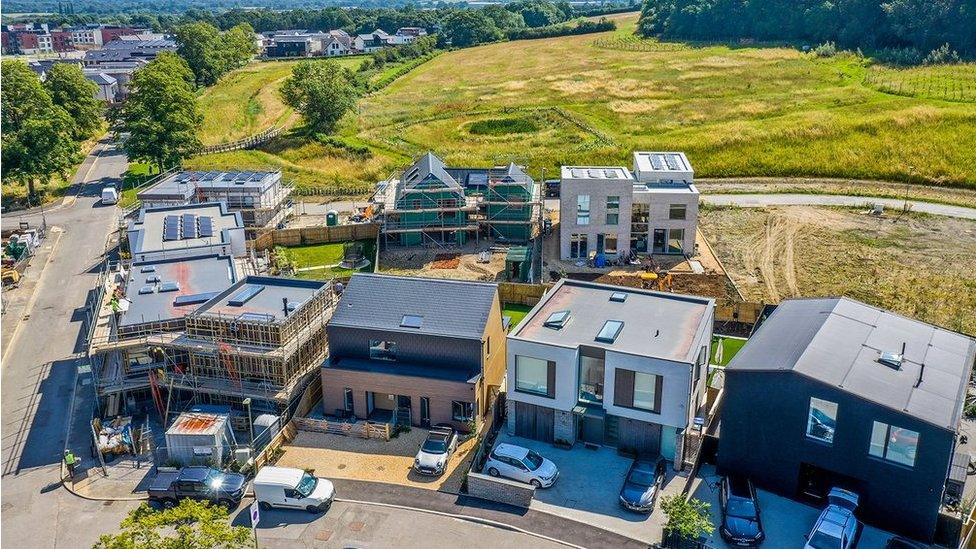Bicester: Bats still in Graven Hill despite development
- Published
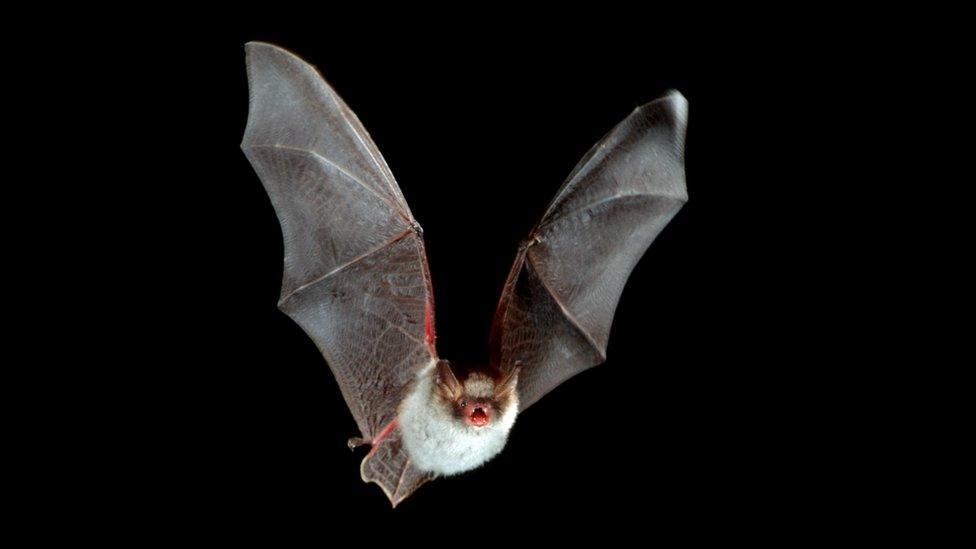
There are 17 varieties of bats native to the UK and over half of these species have been found on the site
A project to relocate bats has been hailed a success by developers.
A survey undertaken in 2015 as part of plans for the Graven Hill development in Bicester, Oxfordshire, found evidence of bat roosts in abandoned buildings and woodlands.
Bat boxes were put up to encourage the protected species to nest elsewhere, so building work could go ahead.
Ecologists Waterman Infrastructure & Environment said endangered species of bats were recently found on the site.
The 1900-property village is being constructed on an abandoned former Ministry of Defence (MoD) site at Bicester.
But before building work could begin, 10 different species of active bat roosts were found on the site, including the Common Pipistrelle and the Brown Long-Eared Bat.
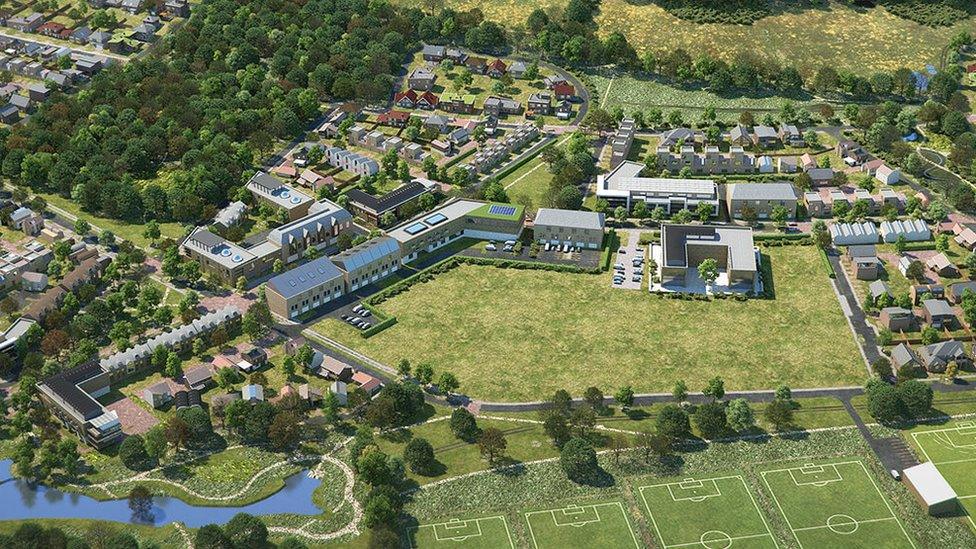
Plans for the estate were created by Graven Hill Village Development Company (GHVDC)
Graven Hill Village Development Company (GHVDC) had to apply to Natural England for permission to demolish any buildings where the legally protected species had been found.
Simon Dowell, principal ecologist at Waterman Infrastructure & Environment, said alternative roosting options had to be installed.
He said: "We're now delighted to have discovered that several of the [bat] boxes we put up in the last couple of years have been colonised by the bats.
"The bats originally were mostly using the old MoD buildings rather than woodland on site to roost, but they have now found the boxes in the trees and seem to really like those."
Most bats are crevice-dwelling, so they like trees and buildings with rough interiors and edges to hang onto.
The boxes installed on the site range in size, with the hibernation boxes able to hold hundreds of bats.
Bat detectors were placed at Graven Hill to pick up the calls and echo locations of the animals.
Mr Dowell said exact numbers were hard to define due to the bats' nocturnal and roosting habits but signs indicated it was a "substantial presence".
"It is great news that the bats have taken to their new roosts and we want to make sure they continue to thrive at Graven Hill," he added.
Building began at Graven Hill in 2016 and is expected to continue until 2032.

Follow BBC South on Facebook, external, X, external, or Instagram, external. Send your story ideas to south.newsonline@bbc.co.uk.
Related topics
- Published11 September 2023
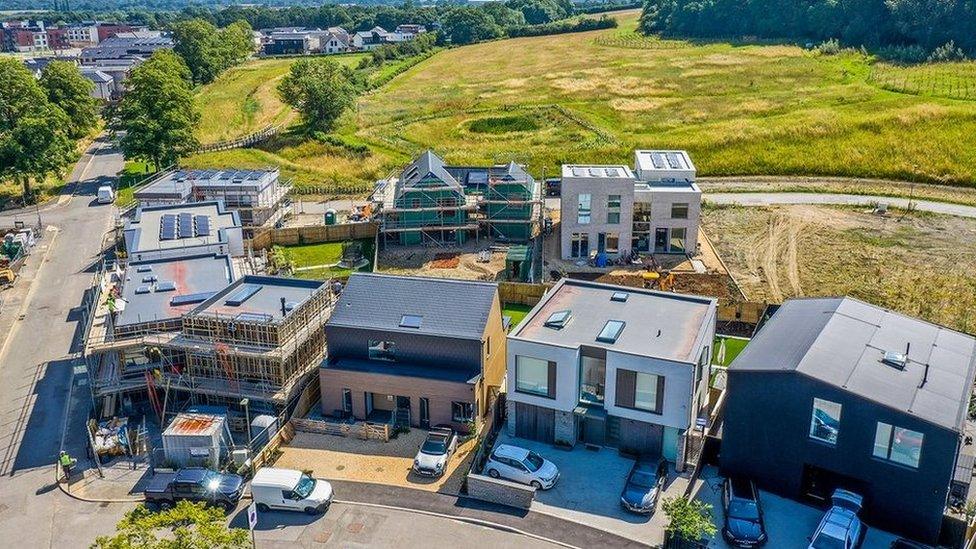
- Published21 January 2023
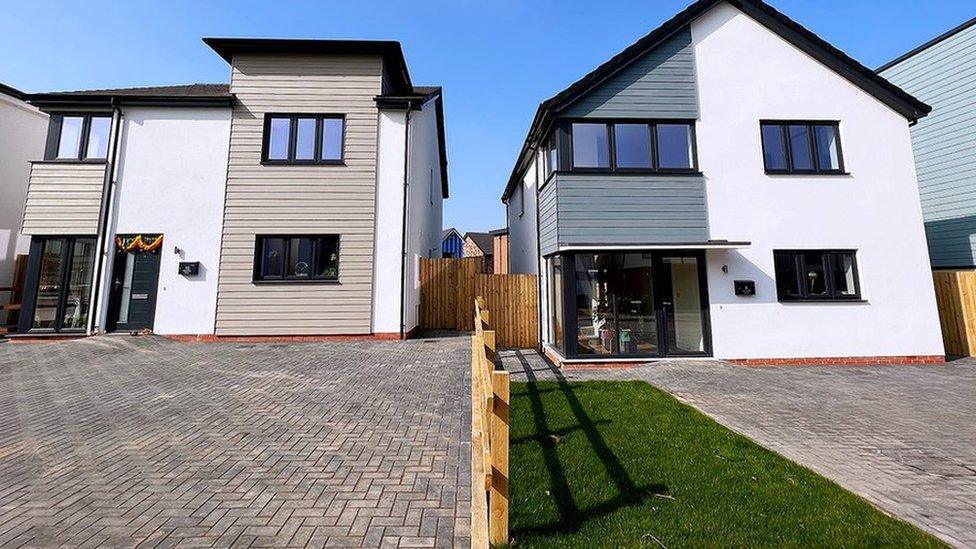
- Published6 April 2023
